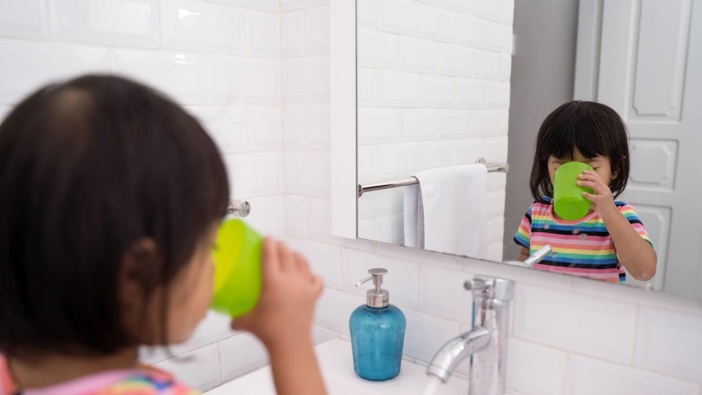Follow
the podcast on

A review has found water in the Wellington region hasn't been fluoridated properly for at least six years.
The report, which has been made public this afternoon, said fluoridation for oral health was not a priority within Wellington Water - which has apologised for the failings.
This was partly due to weak regulatory settings.
Regulation has focused on the safety of drinking water and only ensured it was never over-dosed with fluoride, the report found.
The independent inquiry was launched following revelations the water company turned off fluoride at two plants last year without telling the board, councils, or residents.
But the investigation by consultancy firm MartinJenkins has revealed the extent of Wellington's fluoride failure reaches far beyond the point of facilities being turned off.
Since July 2016, on average, fluoridation has been administered effectively just 20 per cent of the time at Te Mārua and Gear Island treatment plants.
These plants, plagued by ageing and unreliable fluoride infrastructure, supply water to Upper Hutt, Porirua and Wellington City residents.
Over the course of the saga, Regional Public Health was aware the water wasn't being fluoridated properly but didn't raise this as a concern, the report said.
Eventually, fluoridation was turned off at Te Mārua in May 2021 after the supply was overdosed with fluoride twice in the space of one month.
On both occasions, the problem was caught before the water reached residents.
Many people were copied into emails about the fact fluoridation had been switched off.
"Although a lot of people knew something needed to be done, people were assuming that someone else was taking responsibility for leading the response," the report said.
Deputy Prime Minister and Wellington Central MP Grant Robertson has previously said Wellington Water has a lot of explaining to do. Photo / File
More emails suggested in October 2021 that the councils should be told about the situation, but there was a reluctance to do this until there was a firm plan in place.
Fluoridation was then turned off at Gear Island in November 2021 because the storage tanks were past their use-by-date and the building's ceiling was deteriorating.
A lack of ownership and escalation to senior leadership meant reinstating fluoridation at the plants was not progressed urgently enough, the report found.
When the situation was eventually escalated, Wellington Water's board told the public fluoridation had been switched off at Gear Island and Te Mārua in February 2022.
Days later it emerged this statement was incorrect, which the review said was a result of people "talking past each other".
"However, I am confident there was no deliberate attempt to hide the length of time that fluoride had been turned off at the two plants," Doug Martin of MartinJenkins said.
The report was clear efforts were made at an operational level to address problems with the fluoridation facilities, but a lack of oversight and prioritisation made for slow progress.
The insufficient visibility at governance and management levels to ensure effective fluoridation created a "corporate invisibility".
"Over time, this has led to a lack of appreciation internally of the importance that stakeholders and the public place on effectively fluoridated water."
Interviewees described a "reactive culture and learned hopelessness" through which they gradually accepted investments to resolve systemic issues would not be granted.
This was compounded by the fact fluoridation facilities were not considered critical assets.
There were also historical challenges to providing fluoride safely.
These included shortages, resulting in bad quality powder being used and packaging breaking down and getting caught in the dosing system.
In a statement, Wellington Water board chairwoman Lynda Carroll said they apologised for the failings.
She said the findings gave them a clear direction on improvements they could make, many of which were put in place while the inquiry was being conducted.
"Our focus was on putting the situation right as soon as possible," she said.
"When the board commissioned this independent inquiry, we were determined that the
inquiry would not slow the work to restore fluoride back in the drinking water at Te Mārua
and Gear Island."
Chief executive Colin Crampton said they were committed to ensuring the mistakes did not happen again.
"We have a September target date for getting fluoride back into the drinking water at the two plants. Greater Wellington Regional Council has approved funding to construct purpose-built standalone fluoride facilities for both plants. We have improved our fluoridation reporting to councils, on our website, in our Statement of Intent and as a formal performance measure," he said.
The report's recommendations:
- Maintain a relentless focus on effective fluoridation in both the short and long term.
- Make sure the board has the right collective experience and knowledge to govern effectively.
- Provide greater clarity of roles, responsibilities, and processes for managing fluoridation issues within Wellington Water.
- Improve the standard of asset management.
- Review the capacity for internal auditing.
- by Georgina Campbell, NZ Herald
Take your Radio, Podcasts and Music with you









